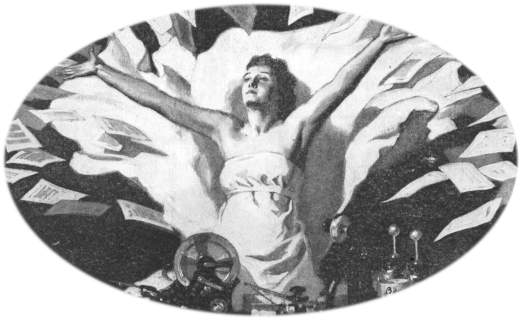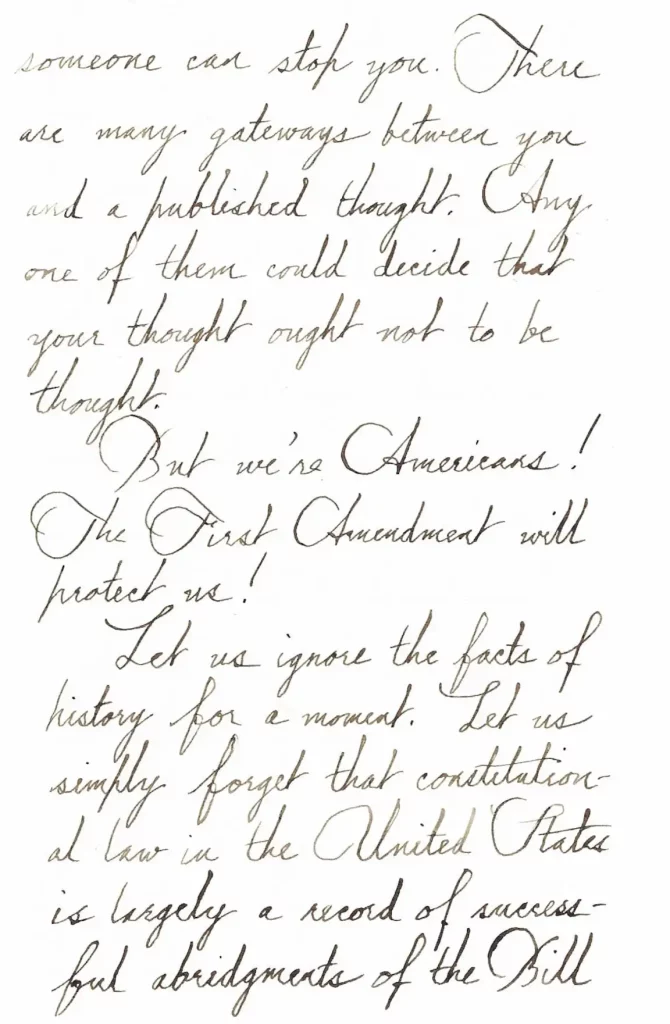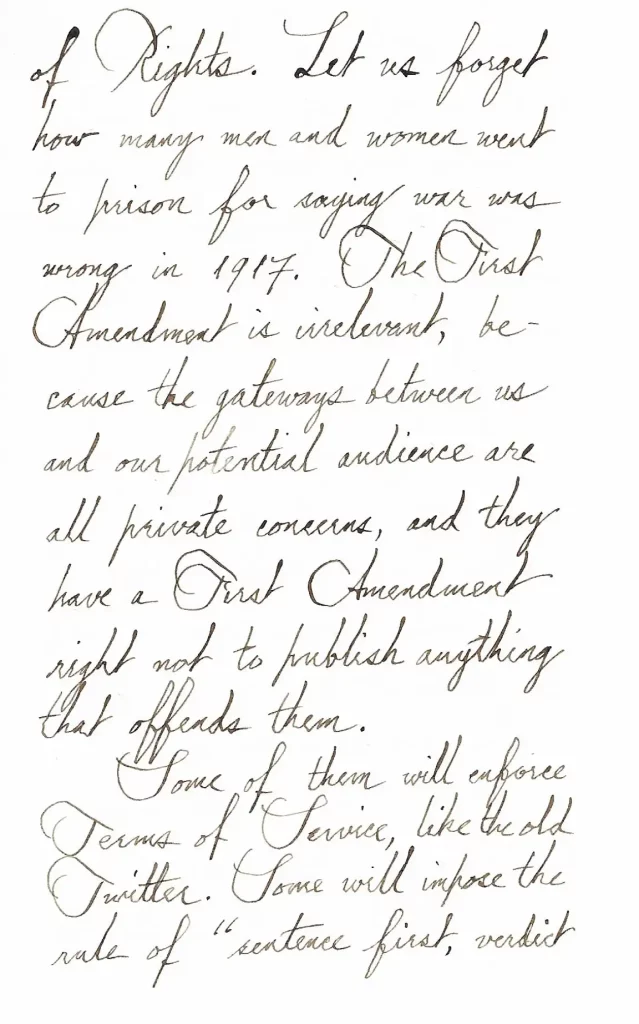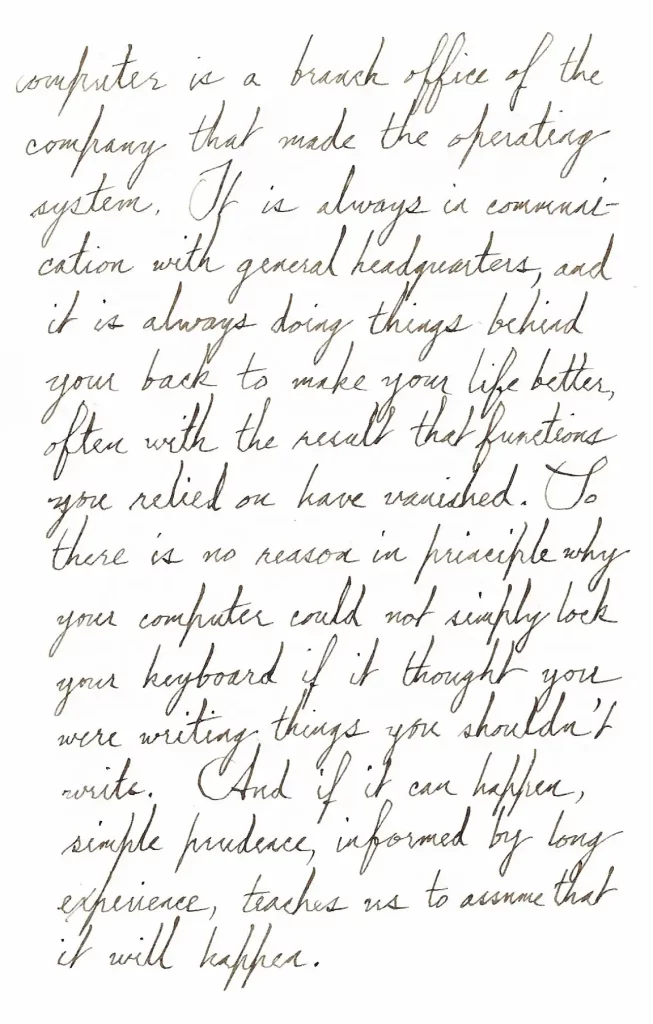






Transcribed below.
What You Can Do with Ink
With ink you can change the world. With ink you can take command of destiny.
Perhaps that sounds a bit extravagant. But consider this: with ink you can give thoughts visible form, and no one can stop you.
That is not true with a computer. With a computer, someone can stop you. There are many gateways between you and a published thought. Any one of them could decide that your thought ought not to be thought.
But we’re Americans! The First Amendment will protect us!
Let us ignore the facts of history for a moment. Let us simply forget that constitutional law in the United States is largely a record of successful abridgments of the Bill of Rights. Let us forget how many men and women went to prison for saying war was wrong in 1917. The First Amendment is irrelevant, because the gateways between us and our potential audience are all private concerns, and they have a First Amendment right not to publish anything that offends them.
Some of them will enforce Terms of Service, like the old Twitter. Some will impose the rule of “sentence first, verdict afterwards,” like the new Twitter. But in most cases you will never know what caused your opinion on emerald ash borers to be blocked and your account canceled, because it will be done by an algorithm whose workings are opaque and whose decisions are final.
Nor is there any reason to suppose that you will get as far as some social network before you run into the closed gate. The days are long past when a computer was a tool, like a pen or a hammer, that is manipulated by its purchaser. Now your computer is a branch office of the company that made the operating system. It is always in communication with general headquarters, and it is always doing things behind your back to make your life better, often with the result that functions you relied on have vanished. So there is no reason in principle why your computer could not simply lock your keyboard if it thought you were writing things you shouldn’t write. And if it can happen, simple prudence, informed by long experience, teaches us to assume that it will happen.
Ink is not subject to any such limitations. Nothing stops us from doing what we like with it except the limits of our own skill.
When the machines have us under their collective thumb—so let us say next Tuesday—we may discover that ink will be the fuel of the revolution. Pens, typewriters, printing presses, spirit duplicators, hectographs—ink will defeat the forces of evil! Ink will make us free!